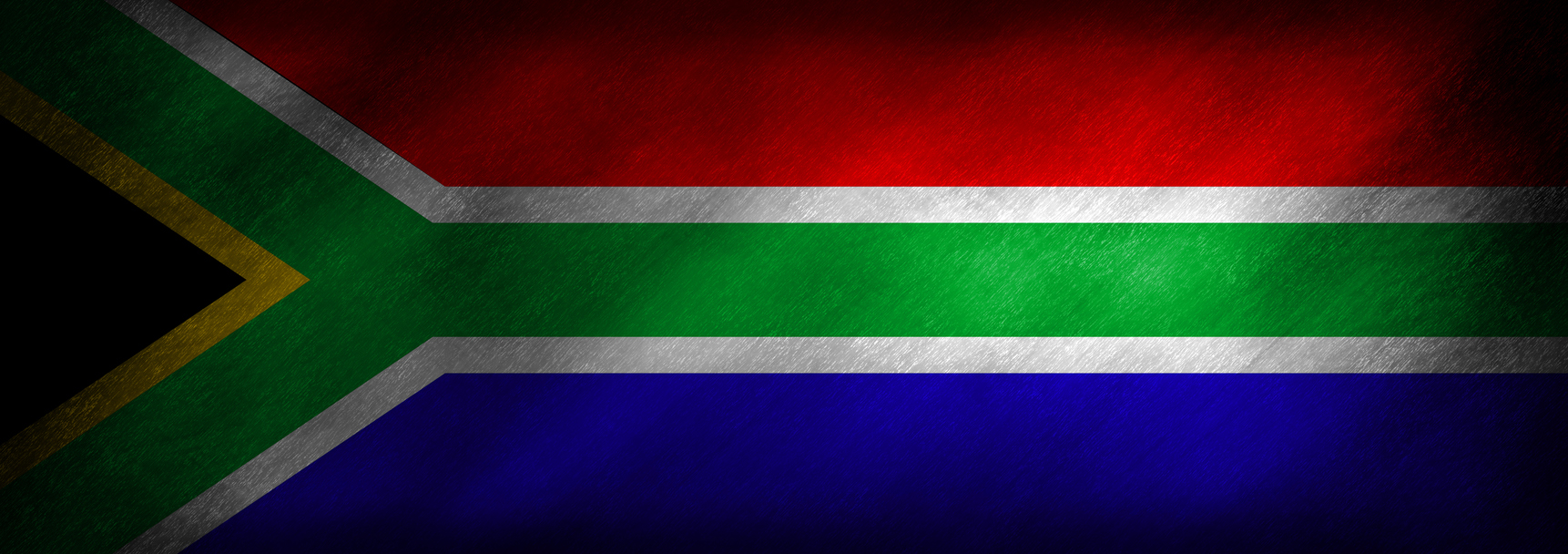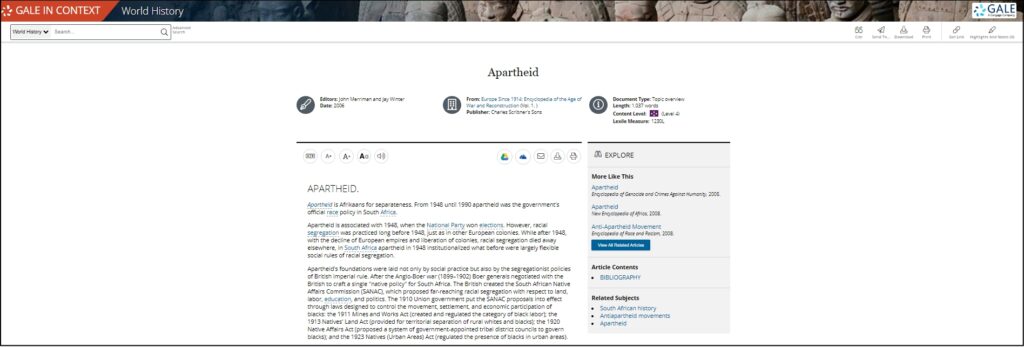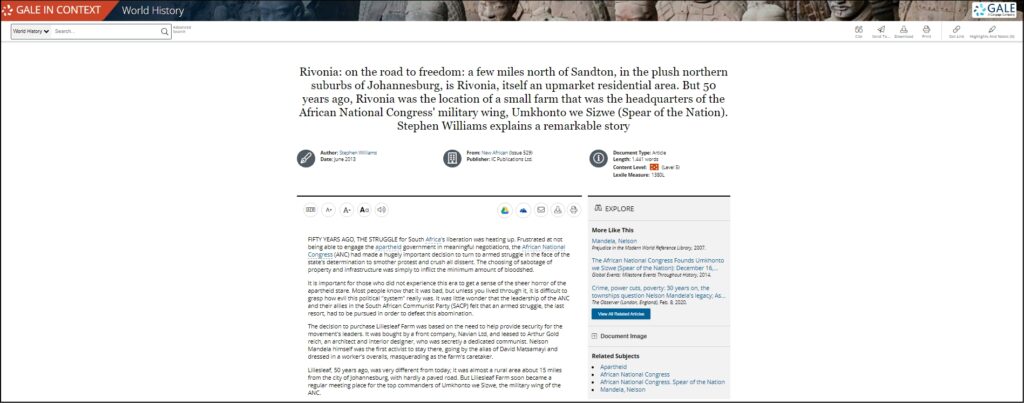| By J. Robert Parks |
Nelson Mandela was one of the most important figures of the twentieth century. As one of the leaders of the African National Congress (ANC), he pushed for an end to the racist system of apartheid in South Africa. Then, as a political prisoner for 27 years, he continued to stand for what he believed and helped negotiate the transition to a free and democratic South Africa. One of the key events in Mandela’s life was the Rivonia trial, which began this week 60 years ago, on November 26, 1963. Teachers and librarians looking to help students understand who Mandela was and why he is so significant will find numerous resources in Gale In Context: World History.
Many students may find it difficult to comprehend the extent to which apartheid controlled the lives of the vast majority of South Africans. White supremacy and segregation were foundational elements of the country since its formation in 1910. Oppression became increasingly codified in ensuing decades, leading to apartheid becoming official government policy in 1948. Black people were relocated to “homelands” where there were few resources and were forced to work on white-owned farms and in white-owned mines and industries. Black people were not allowed to vote or have any kind of power; segregation was absolute; and white people had every conceivable privilege.
The ANC, the primary Black organization in South Africa, had tried to work with the government for much of the first half of the twentieth century, but the establishment of apartheid motivated the ANC’s younger leaders, including Nelson Mandela, to push the organization’s older leaders to take a stronger stand. A series of campaigns followed in the 1950s, with a national strike on May 1, 1950, a “Defiance Campaign” in 1952, and the passage of the Freedom Charter in 1955. The Freedom Charter was the ANC’s manifesto, in which it called for South Africa to be a nonracial society where no group would have any special privileges. Although many white South Africans saw it as a threat, the Charter was an inspiration to South Africans of all races in the ensuing decades. Gale In Context: World History includes numerous primary sources, both excerpts and full-length texts, to provide context to the events, intentions, and sentiments of organizations and nations over the centuries.
The ANC was outlawed by the government in 1960, and Mandela and other leaders decided the following year to form a paramilitary wing known as Umkhonto we Sizwe, which means “Spear of the Nation.” Its attacks, which began in December 1961, were solely against government property and avoided any operation that could lead to people being injured or dying. Mandela was arrested on August 5, 1962, and on July 11, 1963, 13 members and supporters of the ANC were arrested at a farm in Rivonia, South Africa, where they had been hiding and which the media took as the name for the ensuing trial.
The 10 members of the ANC first appeared in court on October 30, 1963, and the Rivonia trial began on November 26 and lasted for more than six months. The most famous part of the trial occurred early on, when Mandela appeared in the defendant’s dock and spoke for three hours. In his testimony, he laid out the ANC’s positions, including its commitment to democracy and why the organization was justified in sabotaging property. Mandela’s concluding words, in which he declared that he was willing to die for his ideals, became a rallying cry not just for the ANC but for all those opposed to apartheid. Despite his forceful appeal, he and seven of his codefendants were found guilty. Mandela was sentenced to life in prison and spent 18 of his 27 years in confinement in the notorious prison on Robben Island. Images in Gale In Context: World History help users connect with notable past events and artifacts through a visual lens.
Mandela was finally released on February 11, 1990, as the South African government tried to negotiate with the ANC. International pressure on South Africa to end apartheid had built in the previous decades, and the white government finally agreed to end apartheid and hold free elections for all South Africans in 1994. The ANC won 62 percent of the vote, and Mandela was elected president. That South Africa was able to transition, with relatively little violence, from a society based on white supremacy to one that was free and democratic was one of the key events of the twentieth century—and a testament to Mandela’s leadership, resilience, and integrity.
About the Author
J. Robert Parks is a former professor and frequent contributor to Gale In Context: U.S. History and Gale In Context: World History who enjoys thinking about how our understanding of history affects and reflects contemporary culture.




